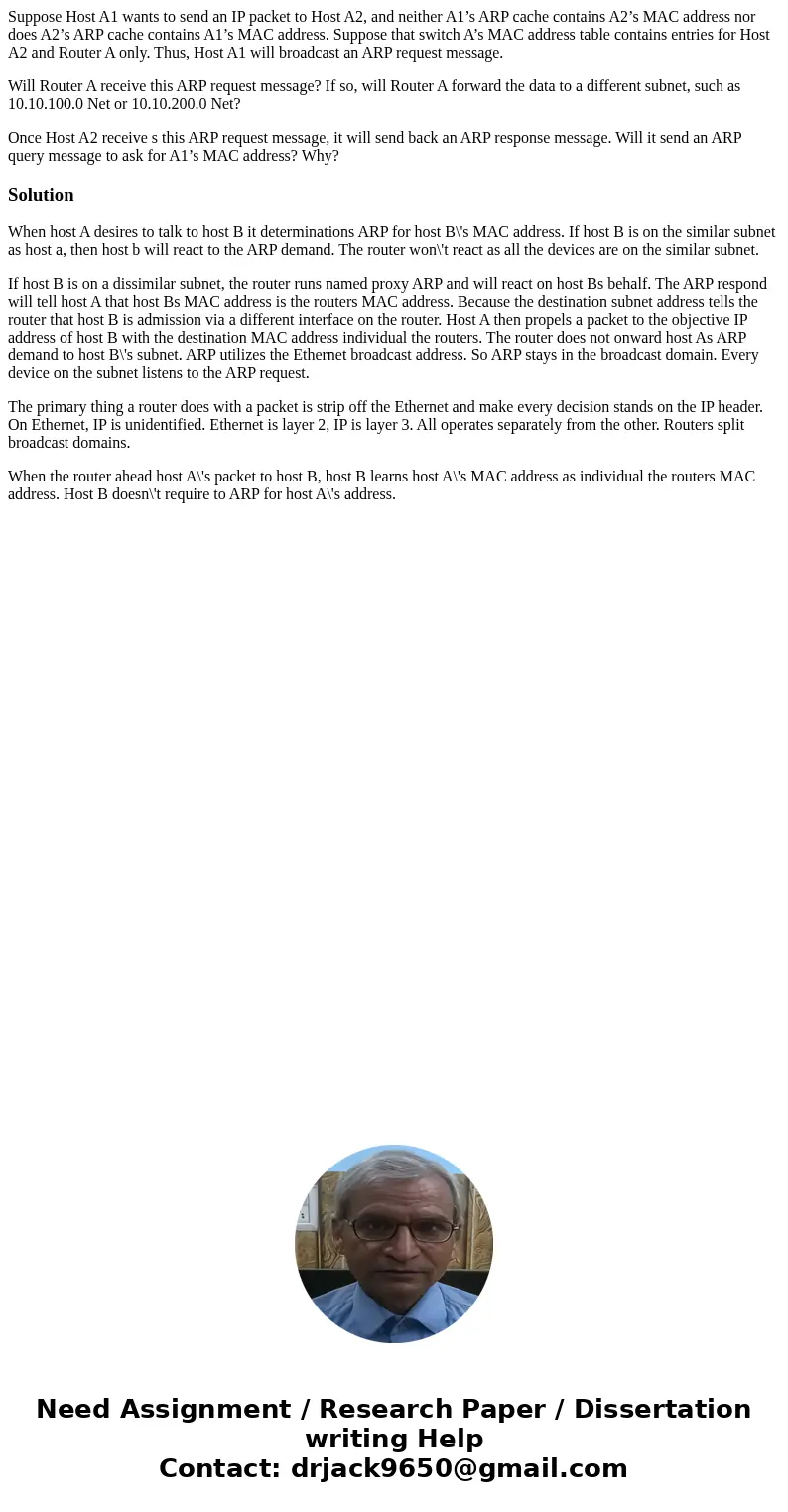Suppose Host A1 wants to send an IP packet to Host A2 and ne
Suppose Host A1 wants to send an IP packet to Host A2, and neither A1’s ARP cache contains A2’s MAC address nor does A2’s ARP cache contains A1’s MAC address. Suppose that switch A’s MAC address table contains entries for Host A2 and Router A only. Thus, Host A1 will broadcast an ARP request message.
Will Router A receive this ARP request message? If so, will Router A forward the data to a different subnet, such as 10.10.100.0 Net or 10.10.200.0 Net?
Once Host A2 receive s this ARP request message, it will send back an ARP response message. Will it send an ARP query message to ask for A1’s MAC address? Why?
Solution
When host A desires to talk to host B it determinations ARP for host B\'s MAC address. If host B is on the similar subnet as host a, then host b will react to the ARP demand. The router won\'t react as all the devices are on the similar subnet.
If host B is on a dissimilar subnet, the router runs named proxy ARP and will react on host Bs behalf. The ARP respond will tell host A that host Bs MAC address is the routers MAC address. Because the destination subnet address tells the router that host B is admission via a different interface on the router. Host A then propels a packet to the objective IP address of host B with the destination MAC address individual the routers. The router does not onward host As ARP demand to host B\'s subnet. ARP utilizes the Ethernet broadcast address. So ARP stays in the broadcast domain. Every device on the subnet listens to the ARP request.
The primary thing a router does with a packet is strip off the Ethernet and make every decision stands on the IP header. On Ethernet, IP is unidentified. Ethernet is layer 2, IP is layer 3. All operates separately from the other. Routers split broadcast domains.
When the router ahead host A\'s packet to host B, host B learns host A\'s MAC address as individual the routers MAC address. Host B doesn\'t require to ARP for host A\'s address.

 Homework Sourse
Homework Sourse